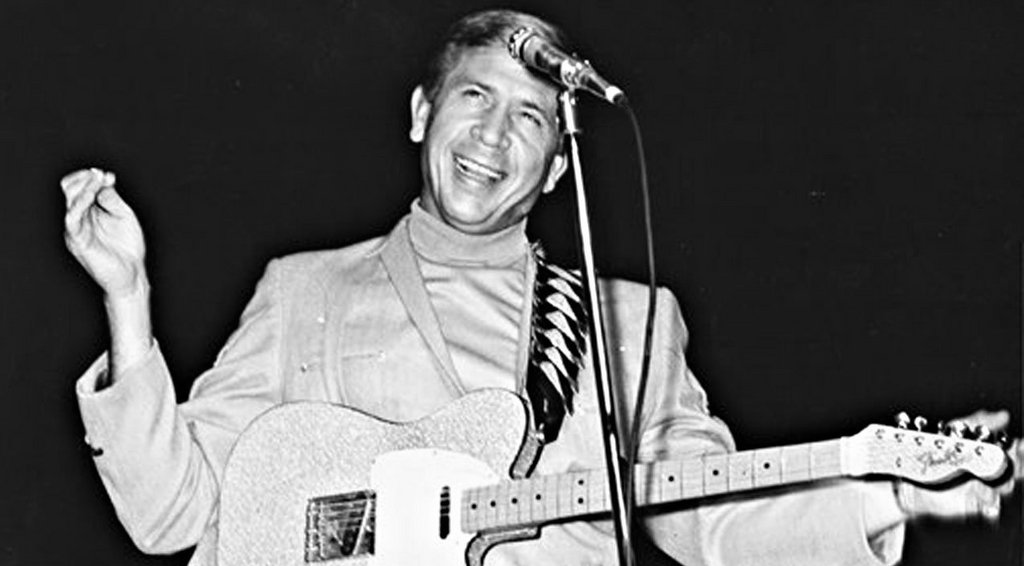
Heartache Wears a Smile in the Honky-Tonk Glow of Lost Devotion
When Buck Owens released “Under the Influence of Love” in 1961, it didn’t storm the charts with fanfare—it wasn’t among his more prominent hits—but its inclusion on the seminal album Buck Owens Sings Harlan Howard revealed something profound: a quiet, aching jewel nestled among louder triumphs. In this collection of songs penned by country songwriting titan Harlan Howard, Owens found an emotional canvas that deepened his own musical identity. Though it may not have reached the upper echelons of Billboard rankings, “Under the Influence of Love” stands as a resonant artifact—less a footnote than a whispered confession echoing through Bakersfield’s sun-drenched saloons.
The song bears all the hallmarks of Howard’s lyrical genius—simplicity that cuts deep, a conversational cadence masking devastating truths. But it is Owens’ delivery that imbues it with such bittersweet immediacy. His voice, simultaneously buoyant and lonesome, glides effortlessly over weeping steel guitars and a shuffling backbeat. The arrangement is classic early-’60s Bakersfield Sound: clean lines, unvarnished instrumentation, and a palpable distance from Nashville’s syrupy orchestration. This was not music tailored for crossover appeal—it was tailored for catharsis.
Lyrically, “Under the Influence of Love” explores the irrational pull of affection even when love itself is long expired. The narrator knows he’s being played—“She knew I’d come back when she called me / ‘Cause once again I’m under the influence of love”—yet returns willingly to heartbreak’s familiar terrain. It’s not just about weakness; it’s about inevitability. Love, like addiction, reshapes our boundaries and betrays our better judgment. Owens doesn’t plead for sympathy; he simply states what is. In this lies the song’s raw honesty.
What makes the track so devastating is its emotional economy. There’s no theatrical collapse here, no grand weeping on stage—just a man quietly reckoning with his powerlessness against someone else’s gravity. The title phrase becomes a double entendre: “under the influence” suggests both intoxication and helplessness, entwining eros with inertia. It’s a stunning encapsulation of romantic fatalism dressed in upbeat chords and toe-tapping rhythm.
In hindsight, “Under the Influence of Love” exemplifies why Buck Owens would become a cornerstone of country music’s rebellious west coast vanguard. Even before he was headlining with Don Rich or leading Hee Haw’s television charm offensive, Owens was crafting songs that bore emotional weight beneath polished surfaces. This track may lack commercial laurels, but its legacy is felt wherever country music tells hard truths with a smile—and where heartbreak still dances at the edge of every honky-tonk laugh.
For those who listen closely, this song isn’t just about returning to someone you shouldn’t love—it’s about understanding why you always will.